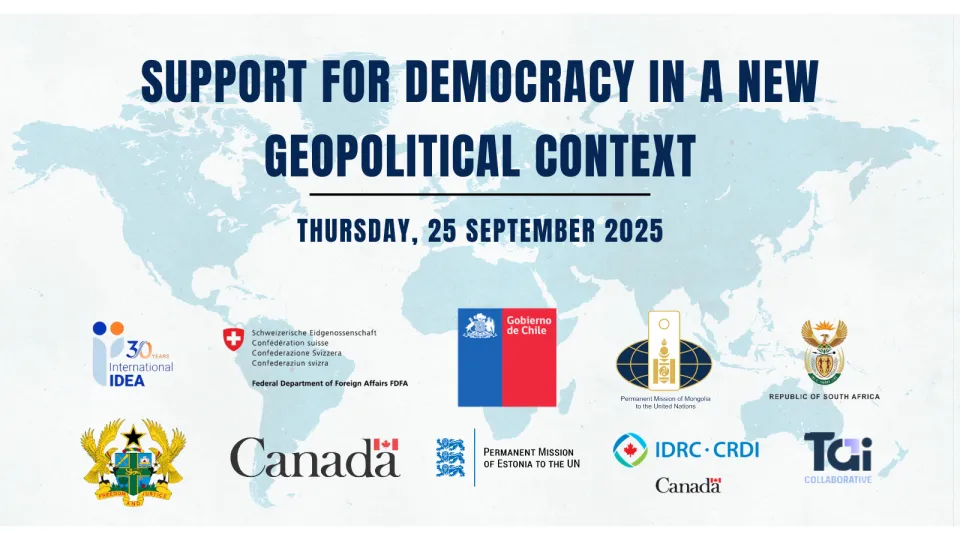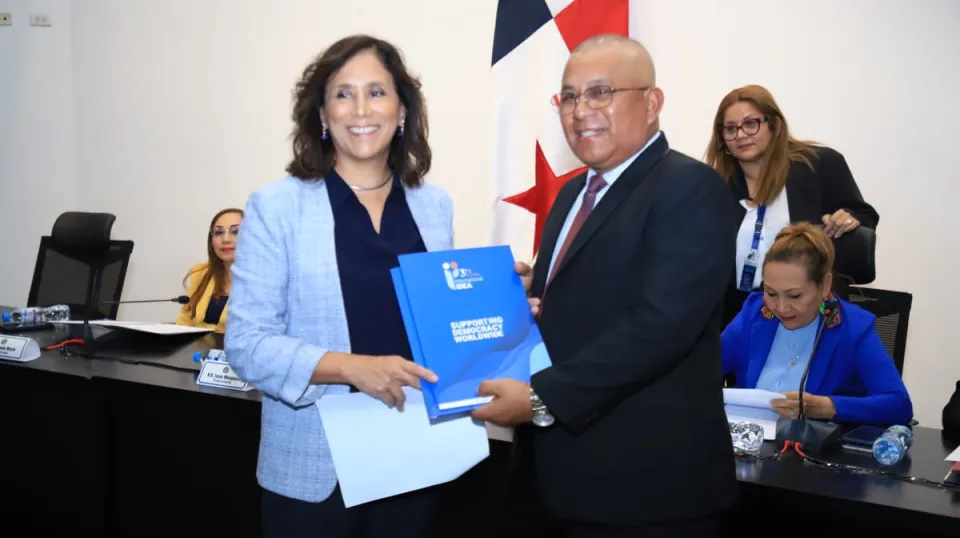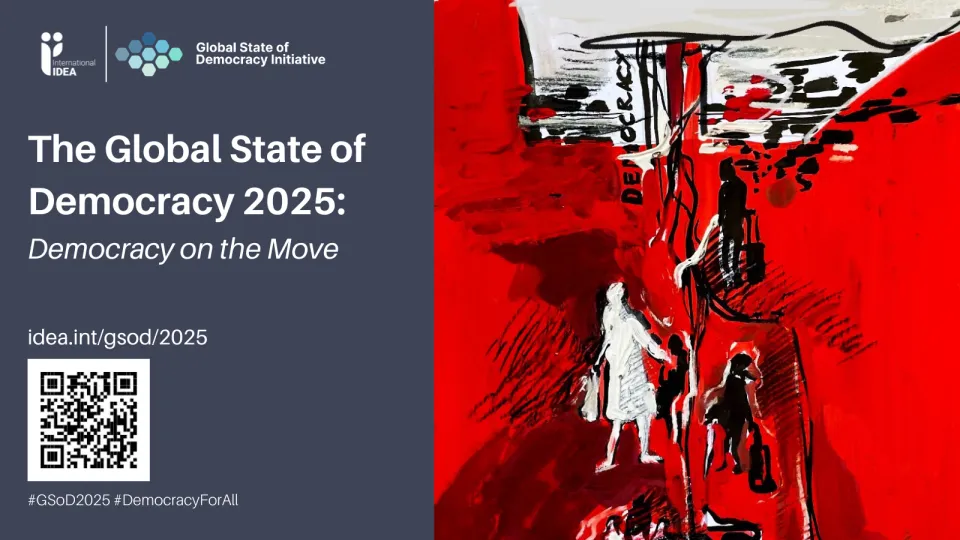Political Campaigning in the Digital Age: International IDEA Publishes Report on Online Political Advertising Frameworks at the EU’s High-Level Event on Elections

The report contributes to debates on legislative and oversight frameworks for online political advertising in an increasingly challenged online democratic space.
“Transparent and factually correct campaign information is vital for voters to make informed decisions. We have seen how democratic debates can be jeopardized by opaque political advertising online” says Sam van der Staak, Director for Europe at International IDEA. “With this publication, International IDEA brings clarity to the debate on how to regulate and implement oversight over Online Political Advertising while safeguarding democracy and fundamental rights.”
The shift of political campaigns and political advertising to the online sphere has opened new avenues for political parties and candidates to reach and connect with voters. However, online political advertising (OPA) bears new risks. Around the world, problems have multiplied regarding campaign disinformation, opaque funding for online campaign ads, and microtargeting of voters. There are persistent risks that online platforms use sensitive personal data, without users’ knowledge or consent, to feed opaque algorithms and target voters with individually adapted and manipulative political messages. But regulation and oversight authorities have struggled to keep up. With the Digital Services Act in force and the soon to be finalized negotiations on the EU regulation on the transparency and targeting of political advertising, regulation is finally starting to catch up with a need for guidance on effective enforcement.
International IDEA’s new publication titled “Winning Elections the Right Way - Online Political Advertising Rules in Europe and Selected Countries Globally” serves as a thorough and comprehensive guideline for regulators and oversight authorities alike. The publication will be launched ahead of the EU’s High-level meeting on elections on 23 October.
The study provides an in-depth comparative analysis of existing OPA regulation frameworks and how oversight authorities can ensure implementation, both in EU-countries such as Czechia, Ireland and Lithuania, and non-EU countries from Canada to the UK and Ukraine. Although OPA regulation and its general acceptability depends on the extent to which political advertising regulation is already in place in those countries, existing regulation frameworks commonly entail a definition of political advertisement. Regulation furthermore contains transparency standards regarding identification of the ad purchaser as well as targeting and funding, and platform responsibilities such as content moderation.
OPA regulation effectively targets the information asymmetry between platforms, regulators, and voters. Clear moderation rules prevent the unhindered spread of mis-and disinformation while transparency requirements avert undue foreign influence on elections by shedding light on the source of finance. However, OPA regulation is just one side of the coin. The other side is ensuring online platforms’ compliance through oversight authorities. To guarantee effective oversight, the study shows that it is essential that the authorities possess sufficient resources and a clear mandate to enforce OPA regulation. Compliance can further be enhanced by including civil society, academia, and the media in monitoring responsibilities. Where regulatory gaps persist and relevant stakeholders remain unaddressed, soft-law approaches like codes of conduct can hold political parties and candidates accountable.
The High-level meeting on elections – organized by the European Commission – brings together policymakers, civil society, and the private sector to discuss challenges like foreign interference, campaign finance, and election disinformation ahead of the 2024 European Parliament elections.
“I would argue that the normative system that we have around elections doesn’t hold and needs renewal. Here is where international cooperation becomes crucial”, says Therese Pearce-Laanela, Head of Electoral Processes at International IDEA, launching the report at the event. ”We need to think through complex issues and comparative solutions together. One key example key example of where professional discussions lead to the formulation of solutions and developments of norms is our new report on online political advertising.”
International IDEA places digital democracy high on the agenda and delivers evidence-based analysis equipping countries across Europe to keep online campaigns transparent ahead of the EP elections.
Click here to read the full report.
This article is written by Alisa Schaible and Konstantin Kümmerle, Interns EU Liaison at International IDEA.








